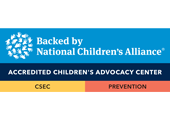Organizations’ Responsibility to Address Sexual Abuse
March 11, 2021
Trigger Warning, this article contains strong content relative to sexual abuse perpetrators and survivors.
There have been numerous headlines of late with an underlying message that has largely been ignored: organizations need to do more to prevent child sexual abuse. Recently, major national institutions have been highlighted in the regular and pervasive sexual abuse of children. More than 92,000 sexual abuse claims now face the Boy Scouts of America, and they are tied up in legal action going back decades. The Diocese of Fall River of the Catholic Church earlier this year released names and the assignments of 75 clergy members accused of child sexual abuse going back 70 years. And, in a recent development of the USA Gymnastics and Michigan State coverup of the systematic sexual abuse of young girls in gymnastics, former Olympic gymnastics coach John Geddert died by suicide after facing dozens of charges including, sexual assault and human trafficking.
While all of these organizations are different, and unrelated victims were abused over time, these organizations had two things in common: they all had direct services and supports to serve children, and they all systematically covered up reports and evidence of sexual abuse. Organizations that exist to help children have the means and capabilities to stop systemic abuse.
To get to the next step in providing safety to all children is to acknowledge that preventing sexual abuse is a priority in the mission of the organization.”
To get to the next step in providing safety to all children is to acknowledge that preventing sexual abuse is a priority in the mission of the organization. For too long, sexual abuse has been a taboo subject hidden in the shadows, increasing the likelihood of the victimization of children. Some organizations confront challenges in their systems, particularly surrounding safety and protocol, but don’t have the policies and guidelines in place to react quickly and appropriately to instances of sexual abuse.
The following are some starting suggestions for organizations to consider in adopting a visible and zero-tolerance policy to sexual abuse:
- Rigorously screen all potential employee’s and volunteers. Go beyond the statewide CORI, include SORI and national searches, for potential offenses in other states.
- Thoroughly check references, and conduct Google and social media searches of applicants.
- Have strong organizational policies and procedures in place that define sexual abuse and explicitly explain and prohibit inappropriate contact, communication, or conduct with children at work or outside of it.
- Limit one-on-one time with staff and employees with children; and monitor the behavior of staff and their interactions with children.
- Have clear mandated reporter training, expectations, and means for confidential internal reporting of concerns of suspicious or inappropriate behavior.
- Inform parents and children of your policies and procedures and encourage conversations between children and parents about body safety. Have these policies posted publicly visible on your website.
- Provide training to your employees about how to recognize, respond and report child abuse. Only 10 percent of children ever disclose sexual abuse, and it is often the ability to recognize behavioral signs and symptoms of abuse to get help to children in need.
It is not easy to identify a predator at first, as they most often are people we know and trust.”
When an organization unintentionally invites a predator into their midst, they must have the resources at hand to respond immediately to reports of any sexual misconduct and to prohibit further incidents. We cannot emphasize this enough. It is not easy to identify a predator at first, as they most often are people we know and trust. However, once a predator has been accused of an alleged offense, it must be taken very seriously, with no room for debate or repeated violence.
By having clear zero-tolerance guidelines from the outset, the first instance of alleged sexual abuse will be taken very seriously and not overlooked. These policies must come from leadership, and conversation surrounding sexual abuse and children’s safety should be encouraged. The more we bring these discussions to light, the closer we can get to a future free of sexual abuse of children.
We want to extend our heartfelt apologies to all those affected by sexual abuse, beyond just the Boy Scouts of America, the Diocese of Fall River of the Catholic Church, and U.S. Gymnastics. We seek to share your stories to amplify them and to move towards a future free of sexual abuse.
If your organization would like to learn more about having effective policies, procedures and training to recognize, respond and report child sexual abuse contact Jacob Stapledon, Community Engagement and Education Coordinator at Children’s Cove.






